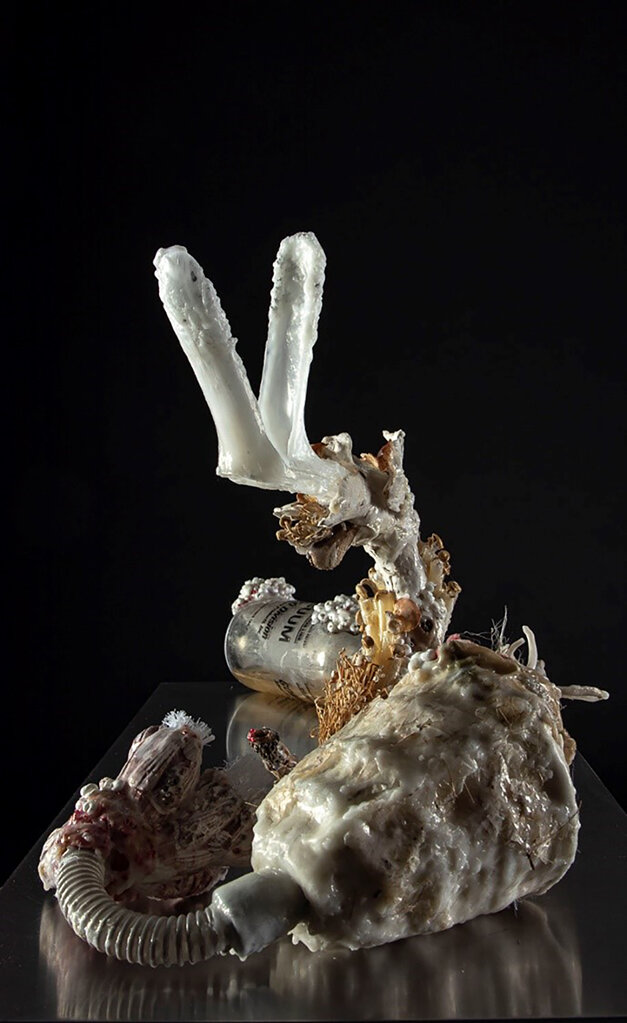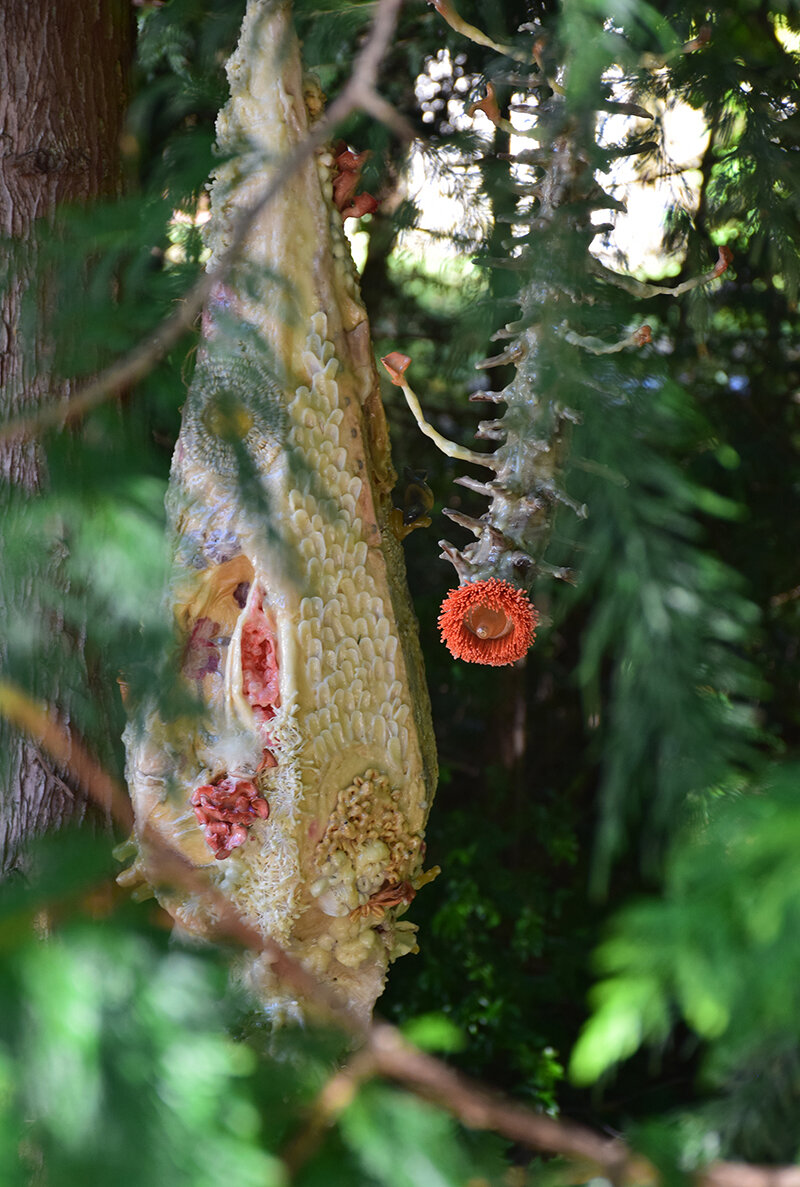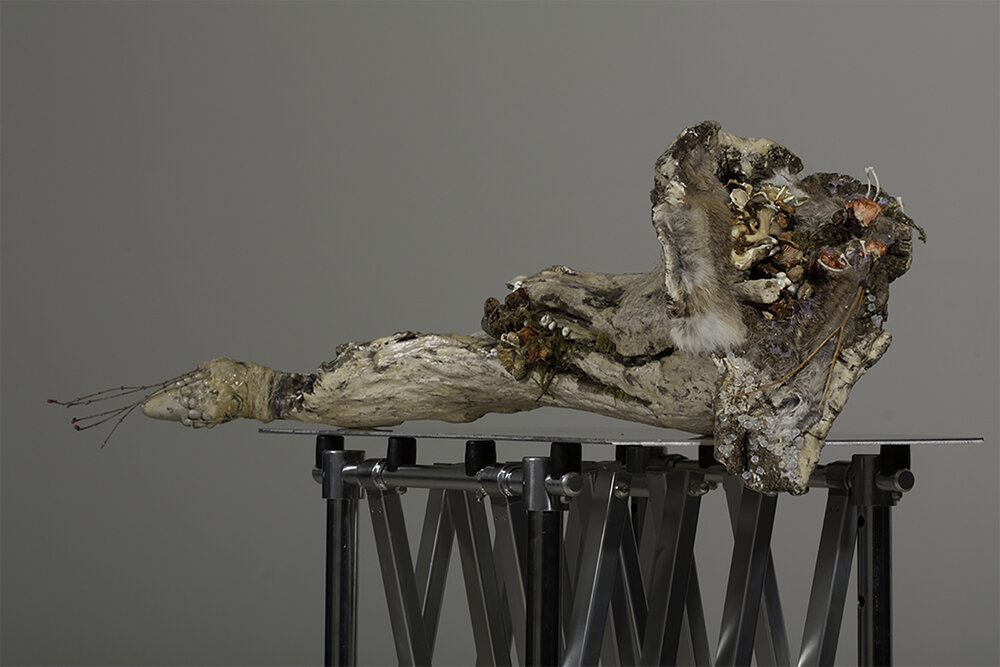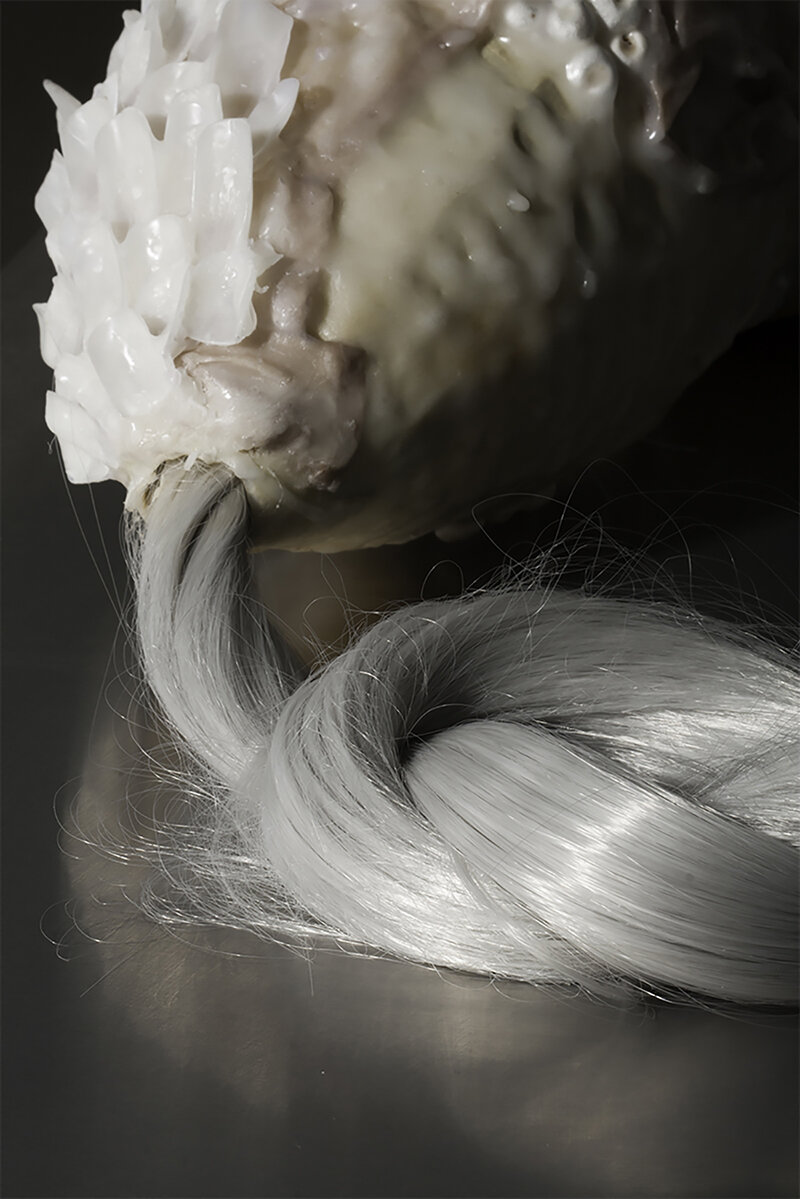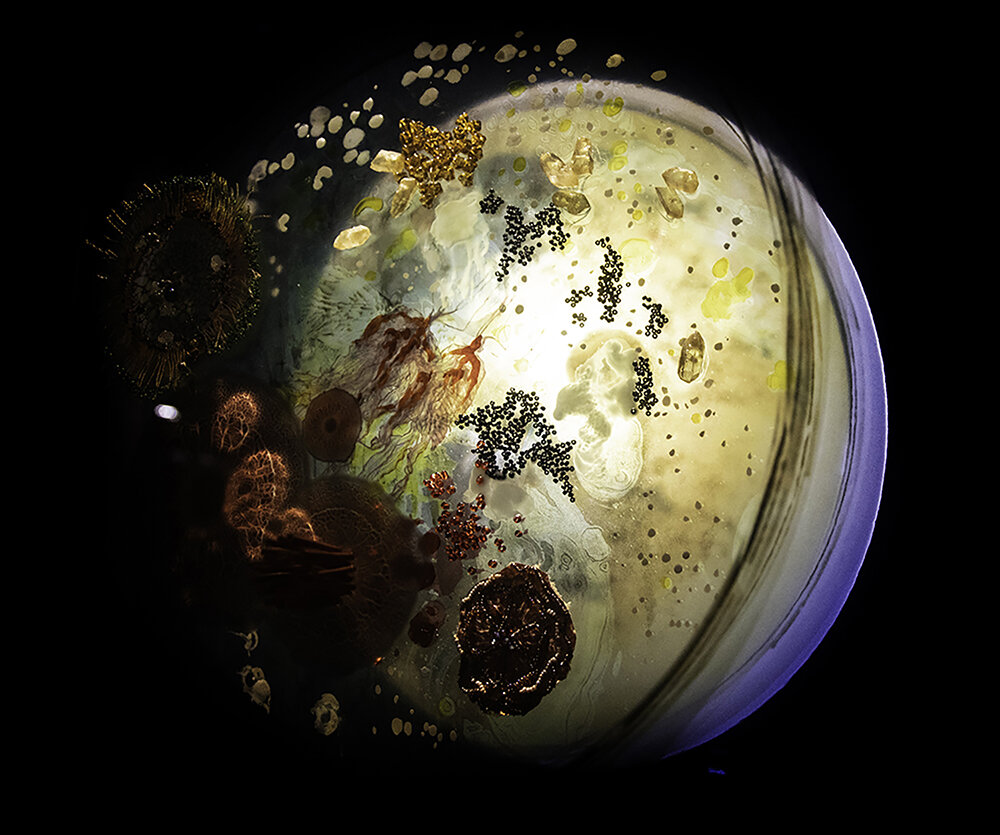Eve Provost Chartrand
Eve Provost Chartrand earned an MFA at the University of Calgary in Canada and is now a PHD candidate both at Transart Institute and Liverpool John Moores University.
Born and raised in Montreal Quebec, Canada, she has a bachelor’s degree in Graphic Design and studied Visual Semiotics and Fine Arts. Her artworks have been presented in exhibitions in Canada, the United States, Europe, and Asia.
Her current work investigates the nature of women’s negative body representations associated with aging. Her visual iterations explore the implications to self-identity and agency of current negative body definitions in women’s lives through the implementation of creative case studies.
By exploring visual strategies defying limited anthropomorphic views that might falsify or alter phenomenological experiences of nature and steer viewers away from a place of origin situated in the body, Provost Chartrand offers compassionate and vibrant humanism prone to generating re-interpretations and re-considerations of aging negative bodies.
praxis statement
My current practice is the result of many years of extensive, ongoing research-creation where visual propositions explore the implications to self-identity and agency of current negative body definitions in people’s lives, particularly ageing women bodies.
The work investigates how artistic transformative encounters, wherein underlying, unifying motifs evoke horror and frailty, also speak to common humaneness, regeneration, solidarities, and shared vulnerabilities.
Challenging discriminating stereotypes negating the fertile ground of ageing, its rich individuality, and the uniqueness of its personal landscape, my research-creation process celebrates the unique role of embodied transformation in the maintenance of one’s personal ecology and the encompassing generosity and ingenious, regenerative creativity of nature. Yet, throughout installations and assemblages, I wish to draw attention to how life reveals itself in unexpected ways if we dare to look beyond what is superficially exposed and expected, thus challenging ideas that ageing is intrinsically defined by ontological decay and death.
While researching narratives of inclusiveness and visibility outside normalized constructs of women’s bodies, the creative process thus generates embodied things where materiality has agency and divergent bodies are revealed and celebrated for their uniqueness and generative attributes. The work is strongly inspired by the idea that objects and their projected abstractions significantly encourage transference or transubstantiation processes. By provoking sensuous re-awakenings through reconsiderations, reinterpretations of experiences entailed by the crafted objects, I am enthralled with enlivening embodied memories of humaneness. It is my wish that these works put forward a compassionate and vibrant humanism prone to generating re-interpretations and re-considerations of mature bodies while directly addressing the participatory aspect of the viewing, which is essential for the work to be socially transformative.
research interest
As a conceptual artist engaging with cultural issues and critical theory in a hybrid artistic process blending mixed media, my iterative research creation method of inquiry is understood as a series of creative case studies informing my visual creations.
Over the last three years, unfolding of creative case studies deepened my understanding of the implications of current negative body definitions in middle-aged women’s lives to self-identity and agency.
Doctorate work will allow me to develop future case studies that are instrumental in building my argument and prompt the most effective answer to my research question.
Unremitting readings and visual exploration will still inform each aesthetic and conceptual decision aimed at challenging the idea that aging is intrinsically defined by disability, ontological decay, and death while looming new fields of interest await consideration.
In addition to reflecting on the realization that works conducted throughout the MFA were inscribed in one overarching creative process, I will continue to develop, apply and adapt Robert K. Yin’s case study research and applications (Yin, 2018) to my research-creation, a methodology I have developed for the MFA, thus validating, or invalidating its efficacy for studio work and research.

